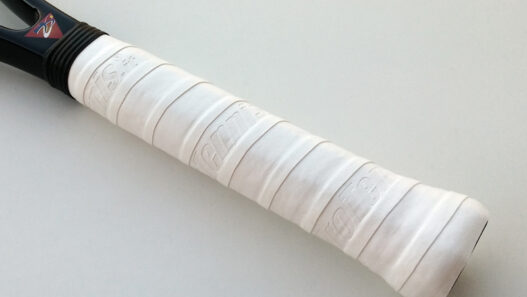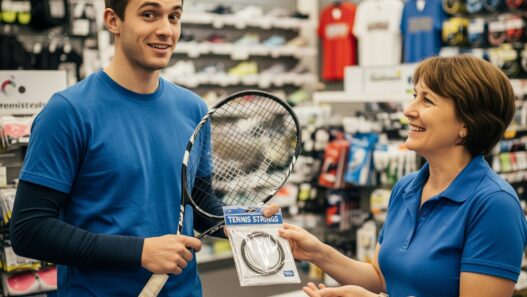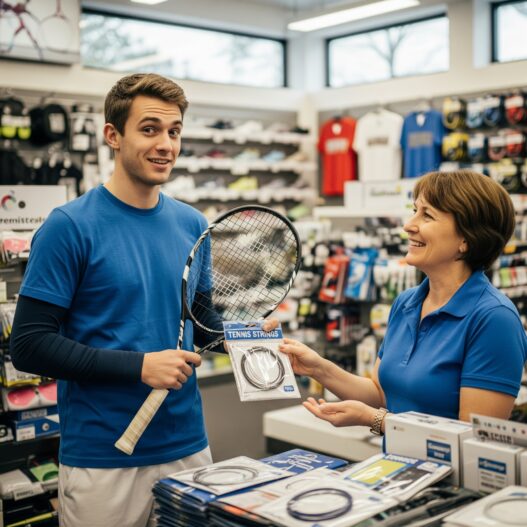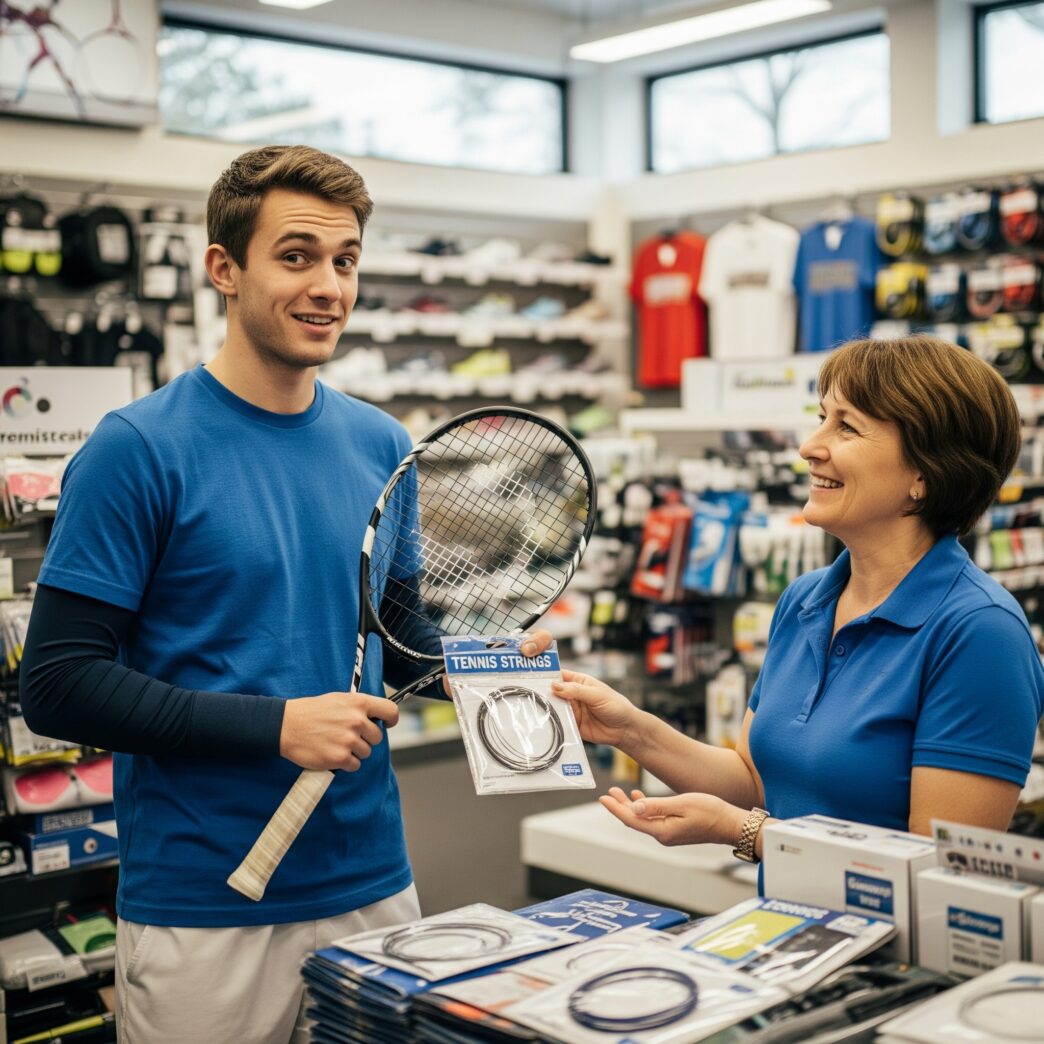I never meant to stay with Alu Power this long. It started, like it does for most of us, with a curiosity. Someone on the next court was cracking serves with a different sound — not louder exactly, just tighter, more compact. The pop had a clarity that made my usual multi feel woolly and indistinct. That night, I read about Luxilon’s flagship co-polyester and bought a set.
That was ten years ago.
For most of my playing life, Alu Power was the string. The gold standard. The benchmark. It had bite without brutality. It gave shape to my spin. It offered control without making my arm hate me. I tried others, sure — RPM Blast, Hyper-G, Tour Bite — but I always came back to Alu like some old lover I knew was no good for me, but couldn’t quite leave. Not when we had so much history.
But something shifted this past season. It wasn’t one bad match or a string snap at 5-all. It was subtler than that — a creeping sense of labor. I started noticing how much more work it took to find depth. The ball didn’t seem to sit in the strings as long. I’d start points with conviction, but rallies would end with my forehand landing short and central, the kind of ball you apologize for before you get passed.
I checked my tension. Dropped it. Changed rackets. Blamed my footwork. But eventually, reluctantly, I came around to the idea that maybe, just maybe, it wasn’t me. Maybe the string that once made me feel invincible was now holding me back.
So I left.
I spent a month testing different options — not casually, but obsessively. I tried all the usual modern suspects: Solinco Confidential (felt stiff and joyless), Yonex Poly Tour Strike (better, but too muted), Head Lynx Tour (close, surprisingly comfortable), and then — by recommendation, not accident — I stumbled into Tecnifibre Razor Soft. It was supposed to be the friendlier cousin of Razor Code. I’d never given Tecnifibre strings much attention — I’d always thought of them as good, not great — but this one felt different from the first hit.
It was firm but not harsh. Precise but not unforgiving. And more importantly, it gave me something Alu hadn’t in years: confidence to swing. The ball seemed to live in the stringbed a half-second longer, just enough time to shape it, angle it, lift it into the court with margin. It let me take risks again.
I strung it at 45 pounds in a Wilson Blade 98 16×19. I’d played the same racquet with Alu at 48–50, but with Razor Soft I didn’t need to overcompensate. The launch angle was easy to control, and the pocketing was… real. Not marketing fluff. Not a phantom sensation you pretend to feel. It was there, every time I caught one clean. The ball sunk, then jumped.
By week three, I knew I wasn’t going back.
Leaving Alu was like giving up caffeine. There’s a certain period of mourning, of second-guessing, of what-if-I’m-just-tired logic. But once the fog lifts, you start noticing the tension that’s no longer there. My arm, which I’d unconsciously started massaging after practice, suddenly felt fine. My swing loosened. My shoulders stopped bracing before contact.
That’s not to say Alu Power is obsolete — far from it. If you’re hitting big, taking the ball early, and stringing often, it’s still one of the most responsive, direct strings out there. But it’s no longer the only option for feel and precision. The market’s changed. There’s more nuance now. More strings that understand poly players don’t want to be punished for playing three times a week and stringing twice a month.
The switch also gave me perspective. I’d built my game around a string that rewarded aggression and punished hesitation. That’s a great incentive when you’re twenty-five and playing tournaments every weekend. But now, I want my gear to work with me, not against me. I want the forgiveness without losing the honesty.
Razor Soft gave me that. So did Poly Tour Rev in a lower gauge. I even flirted with a hybrid — Alu in the mains, natural gut in the crosses — and while it was beautiful, it felt like too much maintenance for not enough gain. I wanted something simpler. Reliable. Like Alu once was.
So, to answer the question people always ask when you switch strings: did it change your game?
Yes, in the sense that it changed how I approached my game. It took away the subconscious handbrake I’d been playing with. It made tennis feel generous again — not easier, but more fluid. More playable. And in this chapter of my tennis life, that might be the most valuable thing of all.
Would I recommend everyone abandon Alu Power? Not necessarily. But if you’ve been grinding through matches lately, wondering why the ball doesn’t feel like it used to — maybe it’s not you. Maybe it’s time to explore what else is out there.
I promise, the game will still be waiting for you on the other side.





















